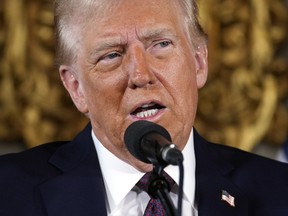In a dramatic turn of events, former U.S. President Donald Trump has lauded the recent ceasefire agreement between Israel and Hamas, describing it as an "epic" deal that will lead to the release of hostages "shortly." This announcement marks a pivotal moment in the prolonged and devastating conflict, offering a glimmer of hope for peace and resolution.
The Ceasefire Agreement: A Closer Look
The ceasefire deal, brokered with significant international mediation, particularly by Qatar, aims to halt the hostilities that have plagued Gaza and Israel for the past 15 months. This period of intense conflict began with a Hamas attack on Israel on October 7, 2023, which escalated into one of the deadliest confrontations in the region's history. Over 46,000 Palestinians have been killed, and more than 110,000 have been injured, according to the Gaza Health Ministry. The conflict has also resulted in widespread destruction and displacement within Gaza.
Key Provisions of the Ceasefire
The ceasefire agreement includes several critical provisions designed to de-escalate tensions and pave the way for longer-term peace:
Hostage Release: A central element of the deal is the release of hostages held by Hamas in exchange for Palestinian prisoners in Israeli custody. The release of hostages is seen as a major confidence-building measure that could help reduce animosities.
Cessation of Hostilities: Both parties have agreed to halt their military operations, providing much-needed relief to civilians caught in the crossfire. This cessation is crucial for humanitarian efforts and rebuilding in Gaza.
Phased Implementation: The agreement outlines a phased approach to peace, with initial steps focusing on immediate de-escalation and subsequent phases addressing broader issues such as border controls and economic cooperation.
Trump's Endorsement and Its Implications
Former President Trump’s enthusiastic endorsement of the ceasefire deal has drawn attention to its potential significance on the global stage. By calling the agreement "epic," Trump highlights the historical importance of a ceasefire in one of the world's most enduring conflicts. His statement that hostages will be released "shortly" underscores the urgency and the high stakes involved in the successful implementation of the deal.
Trump's comments may also signal a broader geopolitical perspective, suggesting that the U.S. could play a more active role in supporting and ensuring the success of the ceasefire. During his presidency, Trump made several controversial moves in the Middle East, including the recognition of Jerusalem as Israel's capital. His current stance may reflect an ongoing interest in the region's stability and peace.
Reactions to the Ceasefire
The ceasefire deal has elicited a range of reactions from international leaders and organizations. Many have expressed cautious optimism, recognizing the potential for a significant reduction in violence and a step towards peace. The United Nations and various humanitarian organizations have welcomed the agreement, emphasizing the importance of sustained efforts to address the humanitarian crisis in Gaza.
In Israel, the reaction has been mixed. While some view the ceasefire as a necessary step to end the bloodshed, others are skeptical about its durability and the intentions of Hamas. The Israeli government’s approval of the agreement, expected to be finalized soon, will be a critical factor in its success.
Challenges Ahead
Despite the hopeful signs, several challenges could undermine the ceasefire’s implementation:
Trust Deficit: The deep-seated mistrust between Israel and Hamas could hinder the effective execution of the agreement. Building trust will require consistent adherence to the terms of the ceasefire and tangible benefits for both sides.
Humanitarian Needs: The extensive damage in Gaza has created an urgent need for humanitarian aid and reconstruction. Ensuring that aid reaches those in need without being politicized will be a significant challenge.
Political Stability: Both Israel and Hamas face internal pressures that could affect their commitment to the ceasefire. Political instability or shifts in leadership could lead to a breakdown of the agreement.
Conclusion
The Israel-Hamas ceasefire deal, hailed by Trump as an "epic" achievement, represents a critical juncture in the conflict. The potential release of hostages and the cessation of hostilities offer a path toward peace, but the road ahead is fraught with challenges. For the ceasefire to hold and evolve into a lasting peace agreement, sustained efforts, mutual trust, and international support will be essential. As the world watches, the hope is that this ceasefire will mark the beginning of the end of a conflict that has caused immense suffering and instability in the region.







0 Comments